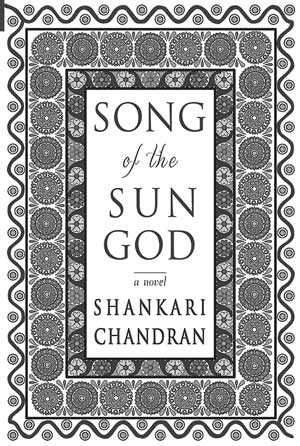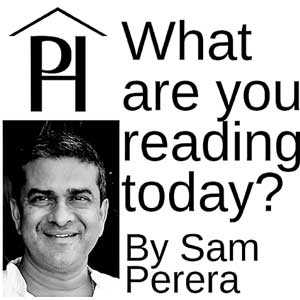Friday Feb 20, 2026
Friday Feb 20, 2026
Saturday, 9 March 2019 00:00 - - {{hitsCtrl.values.hits}}
 Analogous to the world famous Nigerian author Chimamanda Ngozi Adiche who wrote about the Igbo people’s isolation during the Biafran war in her award winning novel ‘Half of a Yellow Sun,’ Shankari Chandran writes about the Sri Lankan civil war from a purely Tamil perspective.
Analogous to the world famous Nigerian author Chimamanda Ngozi Adiche who wrote about the Igbo people’s isolation during the Biafran war in her award winning novel ‘Half of a Yellow Sun,’ Shankari Chandran writes about the Sri Lankan civil war from a purely Tamil perspective.
A decade after the cessation of armed hostilities, having effectively side-stepped a truth and reconciliation process, with unstable governments steering weakly through other forms of mob violence, trust among Lanka’s ethnic groups is fragile. In the absence of fact, fiction is a vehicle that effectively carries the thoughts, joys and hurts of those who felt unfairly targeted during this period of strife. No novel is entirely devoid of bias, but Chandran provides a point of view that is rare among stories set in the backdrop of Sri Lanka’s civil war.
Lulled into security during moments of peace, people get on with their lives, but over the past one hundred years, even before our independence from colonial rule, violence has never been far from the Lankan psyche. Family sagas are a form of literary fiction that Sri Lankan writers have excelled in and Chandran perfects this form to pour out her story.
Through the main protagonist Nala, who is guided into an arranged marriage on the brink of independence, the story follows three generations of women of the same family as they face discrimination and violence, ostensibly at the hands of the State. As the country’s hope slips from collective optimism into a downward spiral of self-destruction, in true Lankan family saga fashion, Chandran fleshes out relationship bonds between mothers, daughters and sisters as they negotiate cultural restrictions, migration and uncertain futures.
Although Nala’s husband Rajan’s career as a doctor grows exponentially enabling the couple to slice through social hierarchies and barriers, they are not immune to growing communal tension. Defeated by events beyond their control, Nala and Rajan seem to lose their close hold on family who slowly migrate to Europe where they have trouble letting go of their cultural baggage and assimilating fully.
Despite being in the safest of Colombo neighbourhoods, and having resisted migration for years, when Nala herself falls victim to ethnic violence, she decides to quit Lanka with her husband and remaining family members to Australia, where the greater family eventually regroup, integrating gradually but surely into Australian life.
 In chiaroscuro fashion, Chandran’s writing carries moments of lightness and humour that will make you laugh out loud. However, there are also moments of senseless outrage that will sadden you. Displaying a mastery of style worth looking out for, when Chandran points the finger of blame it does not seem overly accusatory; she paints a fairly balanced picture of events as they relentlessly unfold and even when she describes bad things happening, the writing is so eloquent you don’t want to fast forward to a safer passage.
In chiaroscuro fashion, Chandran’s writing carries moments of lightness and humour that will make you laugh out loud. However, there are also moments of senseless outrage that will sadden you. Displaying a mastery of style worth looking out for, when Chandran points the finger of blame it does not seem overly accusatory; she paints a fairly balanced picture of events as they relentlessly unfold and even when she describes bad things happening, the writing is so eloquent you don’t want to fast forward to a safer passage.
Much of the novel gives the impression of events having really been lived through, with three dimensional characters one can identify with and the whole rings true without seeming fictionalised. The only overtly visible bias being that the main protagonists are singularly good people who have no negative characteristics.
When you get caught up in this heart-wrenching story and its beautiful writing style, you may not want Song of the Sun God to end but ultimately Chandran’s message seems pragmatic, emphasising that family ties and the invisible bonds of love transcend trauma, suffering and the cultural ties of an ancestral homeland which might just be circumstantial.
(Sam Perera is a partner of the Perera-Hussein Publishing House which publishes culturally relevant stories by emerging and established Lankan and regional authors – for a primarily Lankan audience. Ph books are available everywhere books are sold and through www.pererahussein.com.)